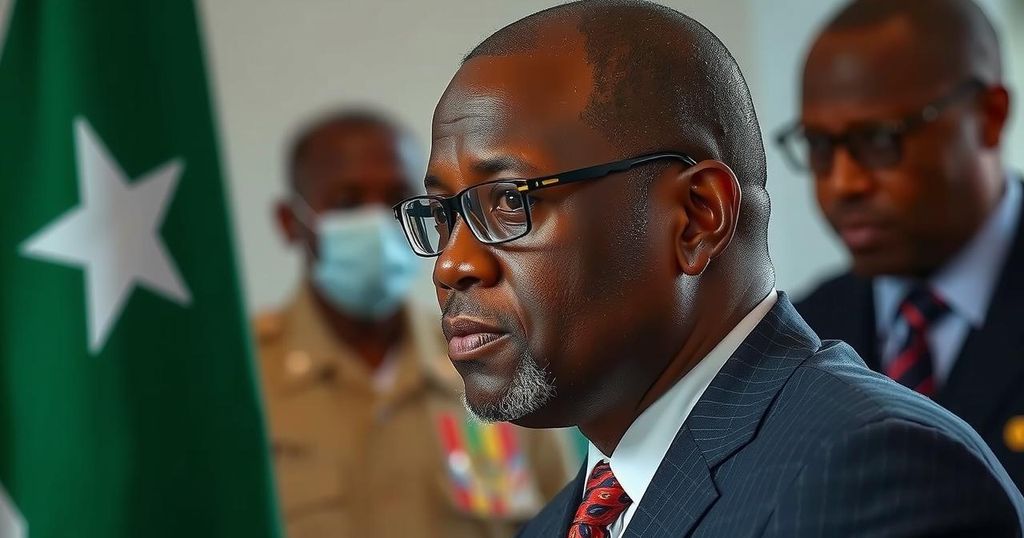Boakai’s Sierra Leone Visit Sparks Criticism Amid Governance Concerns
President Joseph Nyuma Boakai’s recent visit to Sierra Leone aimed to strengthen regional ties but faced criticism over governance issues back home. During discussions with President Julius Maada Bio, both leaders emphasized agricultural collaboration while Liberia’s ongoing security challenges and economic stagnation generated skepticism among its citizens. Political analysts call for a clearer plan from Boakai to address the country’s pressing needs.
President Joseph Nyuma Boakai of Liberia concluded a four-day working visit to Sierra Leone aimed at strengthening regional collaboration and addressing common challenges faced by both nations. Despite being seen as a diplomatic success, the visit has been met with significant criticism domestically due to ongoing issues related to governance, security, and economic stagnation in Liberia. During discussions with his counterpart, President Julius Maada Bio, Boakai underscored Liberia’s commitment to enhancing agricultural initiatives and regional stability, yet skepticism remains among citizens regarding the government’s ability to translate these plans into actionable outcomes.
In their meetings, the leaders expressed mutual admiration for each other’s agricultural developments and pledged to bolster cooperation under the Mano River Union framework. They also addressed important topics such as cross-border trade, democratic reforms, and efforts to promote regional peace. However, the backdrop of insecurity in Liberia, highlighted by the recent disappearance of a Guinean national, underlines the significant challenges that remain unaddressed by the Boakai administration.
Political analysts have noted that despite the government’s rhetoric on progress and security, there is a conspicuous lack of a definitive strategy to combat rising crime rates and human trafficking issues. Emmanuel K. Gaye, a political analyst based in Monrovia, remarked, “While President Boakai is discussing peace and stability in Sierra Leone, the security situation at home remains dire.” This assessment reflects the widespread public sentiment that the government needs to provide a clearer plan to address these pressing issues, which continue to affect the nation’s stability and regional relations.
Moreover, although President Boakai emphasized agriculture as a vital sector for economic recovery and job creation during his visit, citizens express doubt amid escalating food prices and high unemployment rates. The joint communiqué from the second day of the visit further highlighted commitments to support initiatives, including Liberia’s objective to secure a non-permanent seat on the United Nations Security Council for the 2026-2027 term.
Liberia’s political landscape has been marred by ongoing governance issues, security challenges, and economic difficulties. President Joseph Nyuma Boakai’s visit to Sierra Leone marks an effort to enhance bilateral relations and tackle shared problems in the region, particularly in agricultural development and security cooperation. African nations within the Mano River Union (MRU) have varying levels of economic and political stability, making collaboration essential in addressing cross-border issues, including crime and human trafficking. The backdrop of recent security incidents has prompted critics to evaluate the effectiveness of Boakai’s administration, calling into question the alignment between governmental discourse and the lived realities of Liberians.
In summary, President Boakai’s working visit to Sierra Leone was intended as a step towards bolstering bilateral ties and addressing regional challenges. However, it has drawn significant domestic criticism regarding the ongoing failures of his administration to secure and effectively govern Liberia. As the government continues to grapple with pressing security and economic issues, there are calls for enhanced accountability and concrete plans to tackle these challenges head-on, ensuring that diplomacy does not overshadow the urgent needs of its citizens.
Original Source: frontpageafricaonline.com




Post Comment